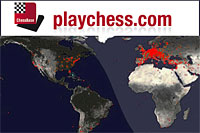All photos from the RCF by Vladimir Barsky and Eteri Kublashvili
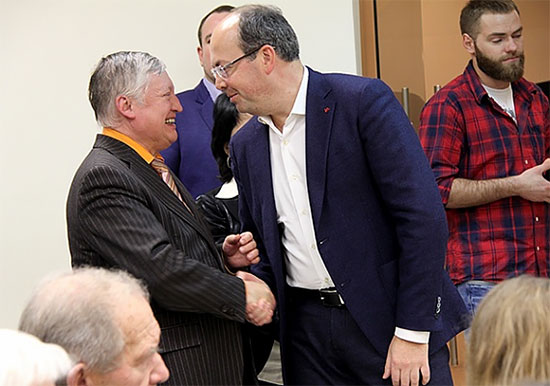
The opening ceremony was an all-star affair, including personalities such as Anatoly Karpov,
greeted here by Oleg Skvortsov
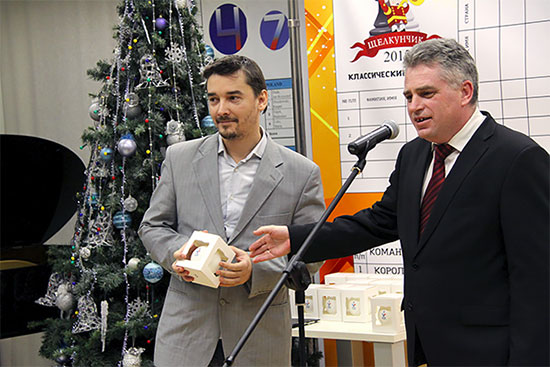
Alexander Morozevich at the drawing of lots
Both team competitions followed the scoring structure of the Zurich International. Pitting teams of four players, the first bouts were classical tournament control games played at 40 moves in two hours, followed by 20 moves in one hour, and finally 15 minutes with a 30-second increment as of move 61. These four games per player counted double, thus a win was worth two points, a draw was one point, and a loss zero.
The second phase of rapid games was worth the same overall, and therefore it was just as important to do well in this part as in the first. While each rapid game was effectively worth half, meaning one point for a win, and half for a draw, there were to games in each encounter for a total of eight. The time control was 15 minutes per game with a 10-second increment per move.
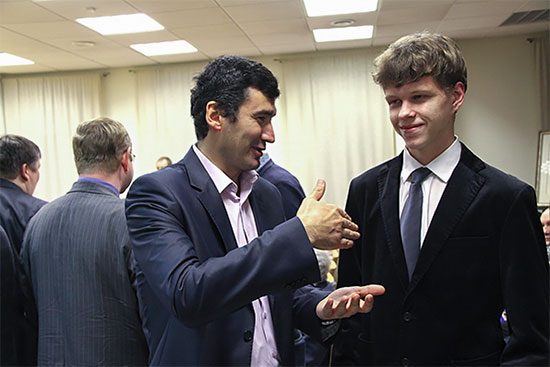
Mikhail Kobalia enjoying some friendly banter with Vladislav Artemiev
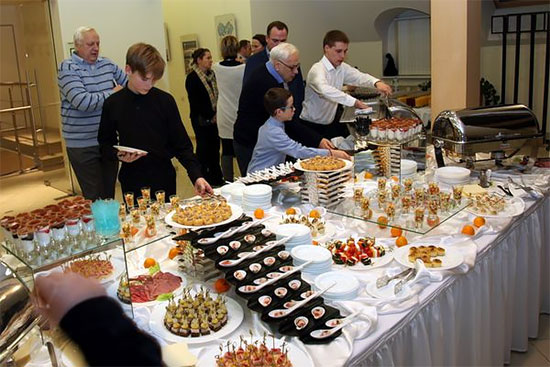
Ahhh... of only all opening ceremonies were so well served!
Kings versus Princes
The matchup was certainly intriguing, with the King's team composed of former World Championship challengers Boris Gelfand and Peter Leko, the ever-popular Alexander Morozevich, and reigning European Champion Evgeny Najer. On the Prince's team were top seed Vladislav Artemiev, Ivan Bukavshin, reigning World Junior champion Mikhail Antipov, and Gregory Oparin.
The Kings justified their rating advantage with wins in both the classical and rapid parts of the competition, though not without difficulties.
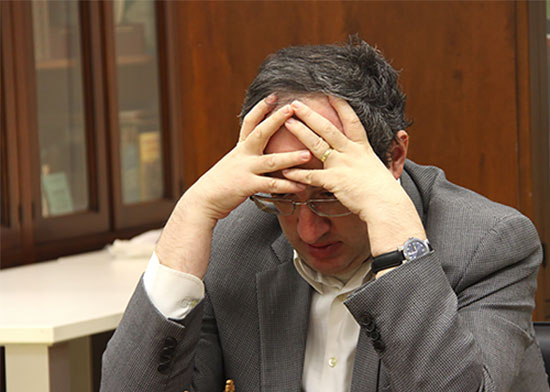
Boris Gelfand was the star of the King's team in both rating and performance
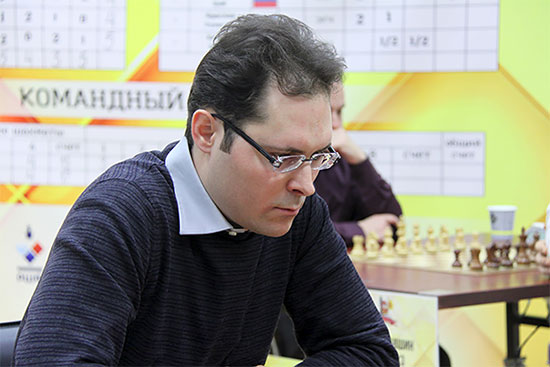
Peter Leko was the second biggest gun, though struggled in the rapid games
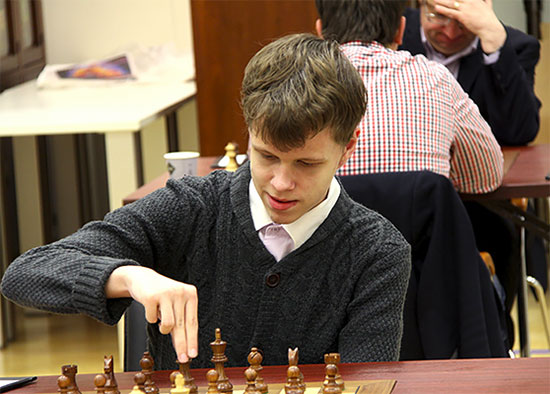
Vladislav Artemiev was the best overal scorer on the team of Princes
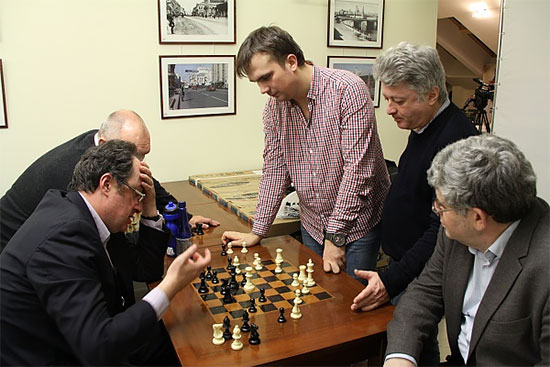
Some post game analysis with notables such as famed trainer Mark Dvoretsky on the far right
Classical game results
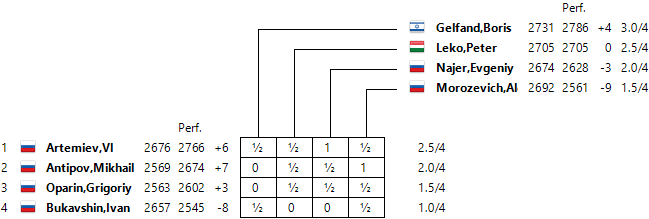
Result: 14.0 - 18.0
Rapid game results
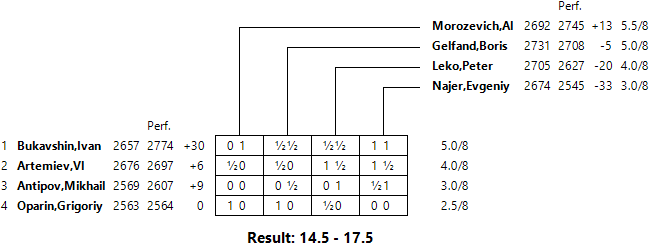
Girls versus Boys
The Girls and Boys teams were a mix of players who have shined in Russian Youth competitions as well as international. It was an extremely hard fought match with the Girls winning the classical games 17-15 (remember each classical win is worth double), while the Boys struck back in the Rapid Games by exactly the same score, ending the match in an overall draw.

11-year-old Dmitry Tsoi only scored 50% in the classical games, winning two and losing two,
but did much better in the rapid games, scoring 6.0/8 to help his team level the match
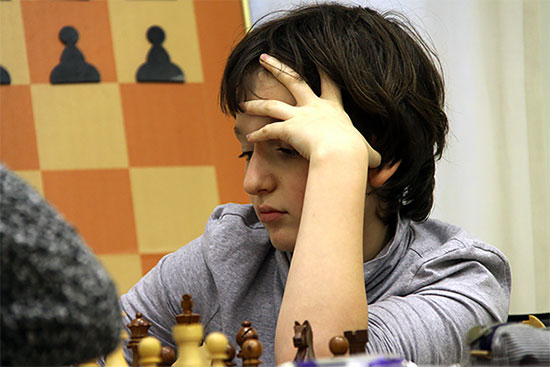
Kirill Shubin was only boy with a positive score in the classical games, though he fared less
well in the rapid games
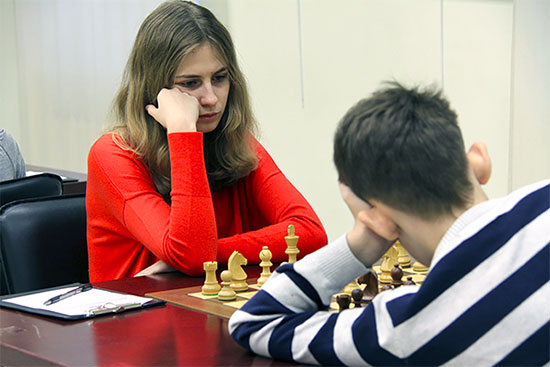
Olga Mylnikova was one of the top-scoring girls in the classical games
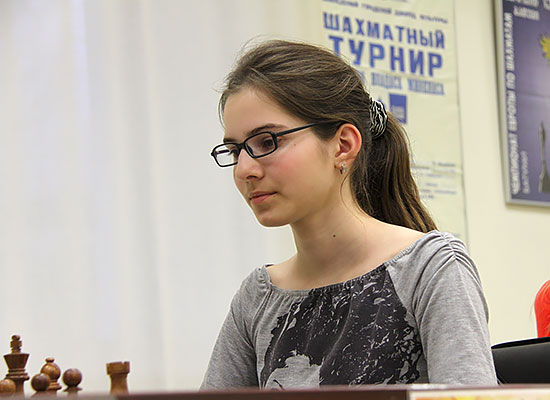
Aleksandra Dimitrova also had a positive score in the classical games
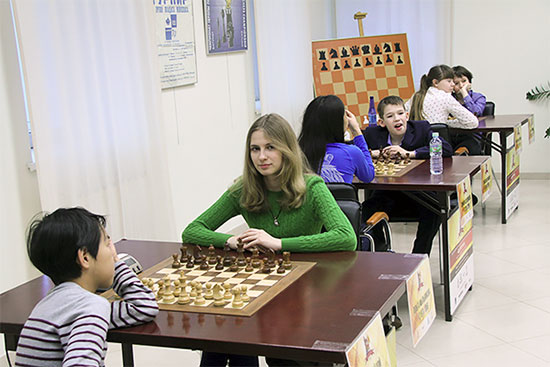
The playing hall where the boys and girls dueled
Classical game results
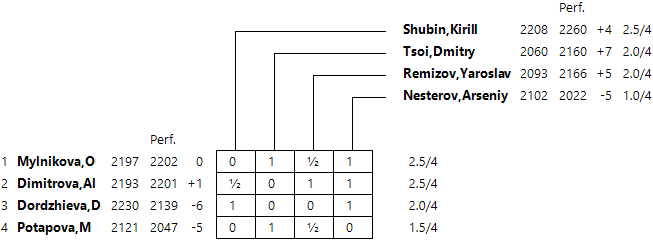
Result: 17.0 - 15.0
Rapid game results
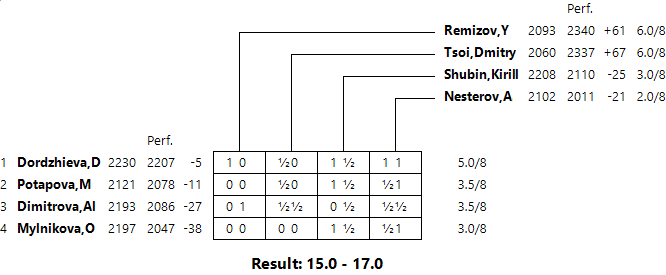
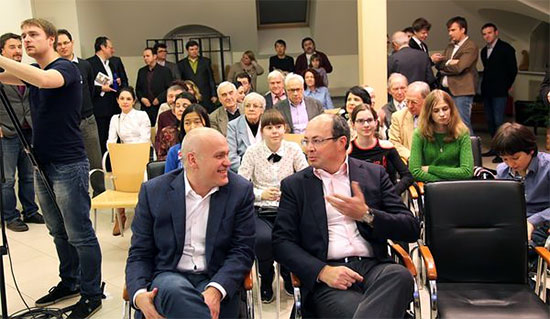
Russian Chess Federation president Andrei Filatov chats with patron Oleg Skvortsov at the closing
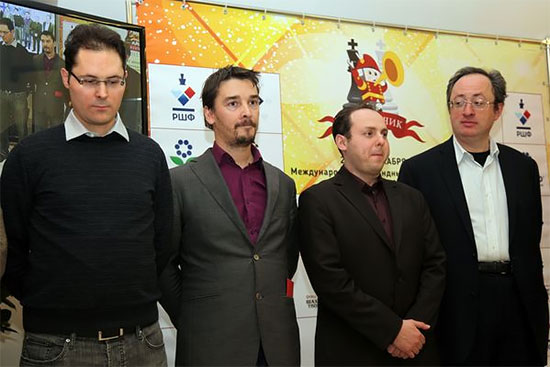
The team of the Kings: Boris Gelfand, Peter Leko, Alexander Morozevich, and Evgeny Najer
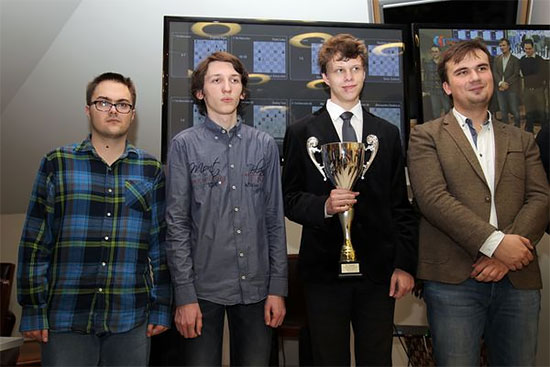
The Princes: Mikhail Antipov, Gregory Oparin, Vladislav Artemiev, and Ivan Bukavshin
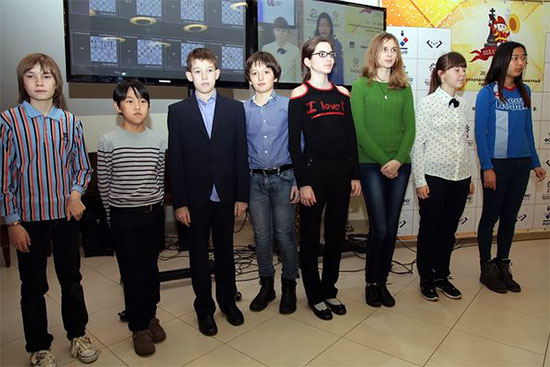
The teams of the boys and girls
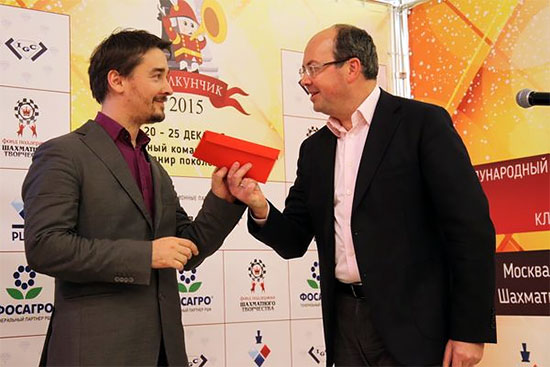
Oleg Skvortsov gives Alexander Morozeivch his prize: tickets to the Nutcracker ballet!
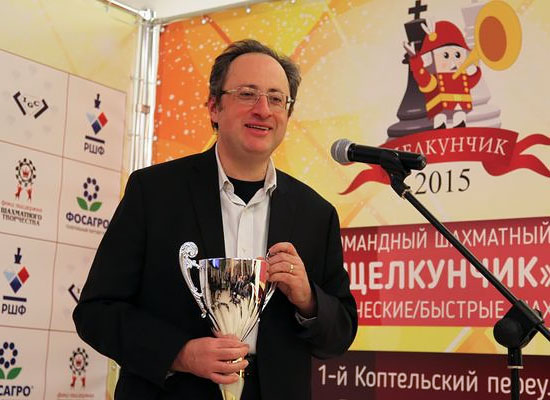
Boris Gelfand was the star of the King's team, and a class act throughout
Boris Gelfand answered questions by reporters Vladimir Barsky and Eteri Kublashvili:
Question - What did you think of the openings of the Princes?
Boris Gelfand - Of Bukavshin: at a good level, and it is clear that in the opening he is clearly superior to the others. Artemiev seems to me to be adopting this modern "Carlsen-like" approach. He doesn't rely on the opening and instead tries to steer into a very long game and use his strengths. Oparin and Antipov both have good repertoires, but that need to be refined.
You recenty published your new book in English. Taking this opportunity, please tell us about it.
The book was written with Jacob Aagaard from Quality Chess publishing. I dictated, and Jacob wrote. This is a serious work, because Aagaard is an experienced coach and helps give the book educational value.
Is this a games collection?
No, Anton Korobov said. It's more like "Conversations with Goethe" (laughs). I am joking, Anton explains. The book is called "Positional decision making in chess" with themes such as "Space superiority", "Transformation of the advantages", "Transformation of the structure", and more. There are many games, not only my own, but from Rubinstein for example.
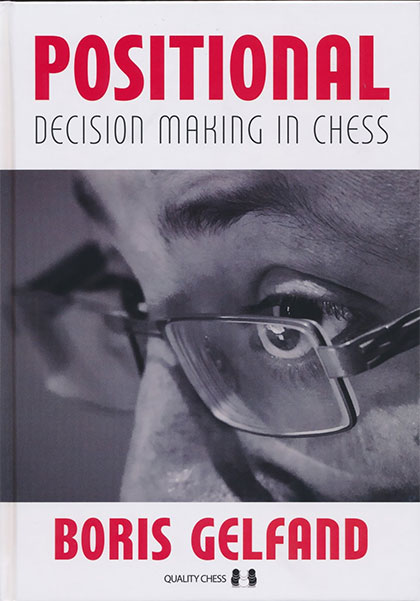
The book can be found at Amazon or at Quality Chess's site among others
I am already in the process of writing the second volume. It will be on dynamic decision making in chess.
Next year, in addition to "The Nutcracker", where do you plan to play?
Most likely, I will come to the "Aeroflot Open", but the year will start with Tallinn, which will host the Keres Memorial. As to what will happen between Tallinn and the "Nutcracker", I cannot say yet.










































